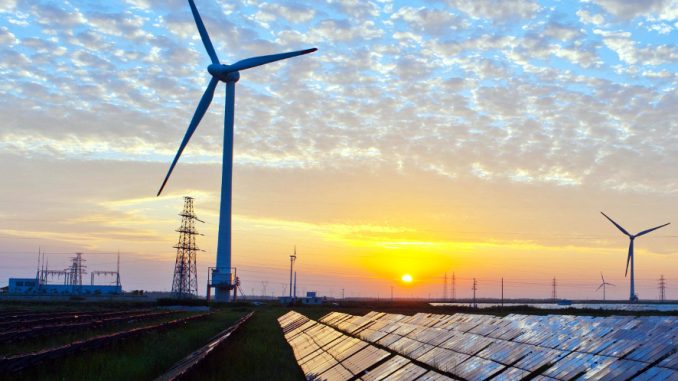
A town-hall style meeting was held on Tuesday, Sept. 12 on Historic Huguenot Street at the New Paltz Reformed Church. The meeting was designed to encourage New Paltz residents to switch from heating methods like oil and gas to cleaner systems such as solar and geothermal energy.
The greeting table held a variety of pamphlets advocating the sponsor of the event, an organization called “Renewable Heat Now.” The high-ceiling room was packed with climate-conscious New Paltz attendees.
One attendee, Luke Stengel, was an employee of Dandelion, a Google X spinoff whose mission is to provide people with affordable, clean, renewable energy using technology meant to extract geothermal energy.
“People think using geothermal energy requires huge power plants, when it’s not that,” Stengel said. “The process is much simpler, and much more accessible to average people. The system involves installing heat pumps which are designed to convert heat energy from the earth into energy that can be used to not only heat and cool homes, but also to heat and cool water.”
Installing a system like this is projected to save the homeowner between $25,000 to $75,000 over the course of 25 years, according to Stengel. He also described geothermal energy as having a “renaissance” with the formation of more companies like Dandelion.
With the increase of availability of these sorts of alternative energy sources, the price of installation is projected to keep decreasing.
“Well, climate change is real,” Stengel said when asked about the risks of ignoring alternative forms of heating and cooling.
The main speaker, Jay Egg, was then introduced. Egg is a leading expert on renewable energy, serving as a technical advisor to a variety of renewable energy organizations, including The New York State Energy Research and Development Authority (NYSERDA). He has worked with governments across the country and in Canada coordinating renewable energy projects and policies.
Egg elaborated on the purpose of speaking at these events.
“Working together as a community — that’s the essence of sustainability,” Egg said.
New York State has developed the long term goal of reducing greenhouse gas emissions by 80 percent by 2050. The problem with this goal is that it is virtually unreachable without addressing a major issue — the widespread use of combustion heating of homes in New York.
Ninety percent of households in New York use fossil fuels to heat their homes. The effects of this are cataclysmic, and likely to continue without grassroots movements encouraging the state.
“The Department of Energy doesn’t get the emissions thing yet, there are no penalties for combustion heating,” Egg said. “And we cannot reach these goals [of the state] without eliminating combustion heating.”
The most efficient alternative, according to Egg, is geothermal heat pumps, and larger scale geothermal loops. These systems offer net zero emissions, while serving as an economical choice because of their propensity to not degrade over time.
Heat pumps can be utilized not only on an individualistic scale — lowering household expenses for heating, reducing a family’s ecological footprint — but in communal ways. Clearwater, Florida, for example, powers the downtown on a 12,000 ton shared geothermal loop. Egg calls this “renewable harmony,” saying, “a thermal grid is something that can be shared.”
At the end of the event, Jessica Azulay, head coordinator of “Renewable Energy Now” and organizer of the event discussed the goals of the organization.
“We want to raise awareness of why these [energy] switches are so important,” Azulay said. “We also want to help people afford to make a switch.
Geothermal energy can become more affordable by pushing the state to develop more incentives promoting clean energy. When the industry grows, cost lowers. The state needs to support this [growth].”
“Renewable Heat Now” will continue touring New York, raising awareness of alternative energy sources. The tour will conclude with a rally in Albany on Dec. 6. The rally will call for the state to recognize the concerns of the people and demand that incentives be created to help prevent climate change. More information on the movement is available on www.renewableheatnow.org.
